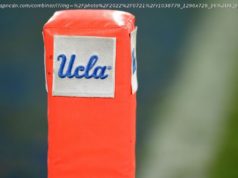A counterfeit Vicodin pill laced with fantanyl was blamed for the musician’s 2016 fentanyl overdose; meanwhile, federal authorities have accused his doctor of writing a prescription for a third party
Criminal charges will not be filed in the death of the musician Prince, who was found dead of an overdose on April 21,2016, a Minnesota prosecutor said on Thursday – the same day newly released documents revealed that Prince’s doctor has agreed to pay US$30,000 in fines related to a federal civil violation involving a prescription he wrote.
“We simply do not have sufficient evidence to charge anyone with a crime related to Prince’s death,” Carver County Attorney Mark Metz told a news conference after a two-year inquiry.
Prince, 57, was found dead in a lift at his home and recording studio complex Paisley Park, near Minneapolis. The official cause of death was a self-administered overdose of fentanyl, which is 50 times stronger than heroin. Metz said Prince died after taking a counterfeit Vicodin pill laced with fentanyl.
“Nothing in the evidence suggests Prince knowingly ingested fentanyl,” Metz said, adding that there was “no evidence that the pills that killed Prince were prescribed by a doctor”.
“There is no reliable evidence showing how Prince obtained the counterfeit Vicodin laced with fentanyl or who else may had a role in delivering the counterfeit Vicodin to Prince,” Metz said.
Investigators found that Prince suffered from severe pain for a number of years and that hundreds of various kinds of painkillers were found in his residence, Metz said.
The inquiry included searches of Prince’s computer, his friends’ mobile phone records and interviews with associates. Some of the pills were prescribed to his bodyguard, Metz said, to protect the singer’s privacy.
Also on Thursday, newly unsealed documents revealed that one of Prince’s doctors, Michael Todd Schulenberg, had agreed to pay $30,000 to settle a federal civil violation concerning a prescription he had written.
His lawyer, Amy Conners, released a statement Thursday saying that “there have been no allegations made by the government that Dr Schulenberg had any role in Prince’s death”. Federal prosecutors confirmed in a letter to Conners that Schulenberg was not a target of a criminal investigation.
However, both those prosecutors and the US Drug Enforcement Administration did allege that Schulenberg, a family doctor who saw Prince twice before he died, had violated the Controlled Substances Act when he wrote a prescription in the name of someone else on April 14,2016.
The settlement, dated Monday, does not name Prince or make any references to the Prince investigation – but search warrants previously released say Schulenberg told authorities he prescribed oxycodone to Prince on April 14 and put it under the name of Prince’s bodyguard and close friend, Kirk Johnson, “for Prince’s privacy”.
Schulenberg’s lawyer disputed that, saying he did not prescribe opiates to any patient with the intent that they go to Prince.
She said that Schulenberg decided to settle to avoid the expense, delay and unknown outcome of litigation, and that “he made no admission of facts nor liability and denies any such liability.”
It’s illegal for a doctor to write a prescription for someone under another person’s name. Anyone convicted of doing so could lose his or her DEA registration – meaning they could no longer prescribe controlled substances – and could face discipline from their state medical board.
“After he learned of Prince’s addiction, [Schulenberg] immediately worked to refer Prince to a treatment facility and to transfer care to a chemical dependency specialist,” Conners said.
Under the settlement, Schulenberg has 30 days to pay US$30,000 to the US government. He also agreed to stricter requirements for logging and reporting his prescriptions of controlled substances for two years.
Among them, he must keep detailed logs of all controlled substances he prescribes, allow the DEA to inspect the logs and other records without prior notice, and allow the DEA access to his prescribing history on demand.
The settlement says the DEA will not revoke Schulenberg’s registration unless he does not comply with the requirements. It’s unclear whether the Minnesota state medical board will take action. Schulenberg’s licence is currently active and he has no disciplinary action against him.
While many who knew Prince over the years said he had a reputation for clean living, some said he also struggled with pain after years of performing at an intense level. Documents unsealed last year paint a picture of a man struggling with an addiction to prescription opioids and withdrawal, and they also show there were efforts to get him help.
Oxycodone, the generic name for the active ingredient in OxyContin, was not listed as a cause of Prince’s death. But it is part of a family of painkillers driving the nation’s overdose and addiction epidemic, according to the US Centres for Disease Control and Prevention. Nearly two million Americans abused or were addicted to prescription opioids, including oxycodone, in 2014.
A laboratory report obtained by Associated Press notes that one of the pills found in a prescription bottle at Paisley Park that bore Johnson’s name tested positive for oxycodone.
“Doctors are trusted medical professionals and, in the midst of our opioid crisis, they must be part of the solution,” US Attorney Greg Brooker said in a statement Thursday.
“As licenced professionals, doctors are held to a high level of accountability in their prescribing practices, especially when it comes to highly addictive painkillers.… We are committed to using every available tool to stem the tide of opioid abuse.”
A confidential toxicology report obtained by Associated Press in March showed high concentrations of fentanyl in Prince’s blood, liver and stomach. The concentration of fentanyl in Prince’s blood alone was 67.8 micrograms per litre, which outside experts called “exceedingly high”.
Prince did not have a prescription for fentanyl. Search warrants unsealed about a year after he died showed that authorities searched his home, cellphone records of associates and his email accounts to try to determine how he got the drug.
Authorities found numerous pills in various containers stashed around Prince’s home, including some counterfeit pills that contained fentanyl.
Домой
United States
USA — Criminal Criminal charges won’t be filed in Prince’s death, but musician’s doctor will...






